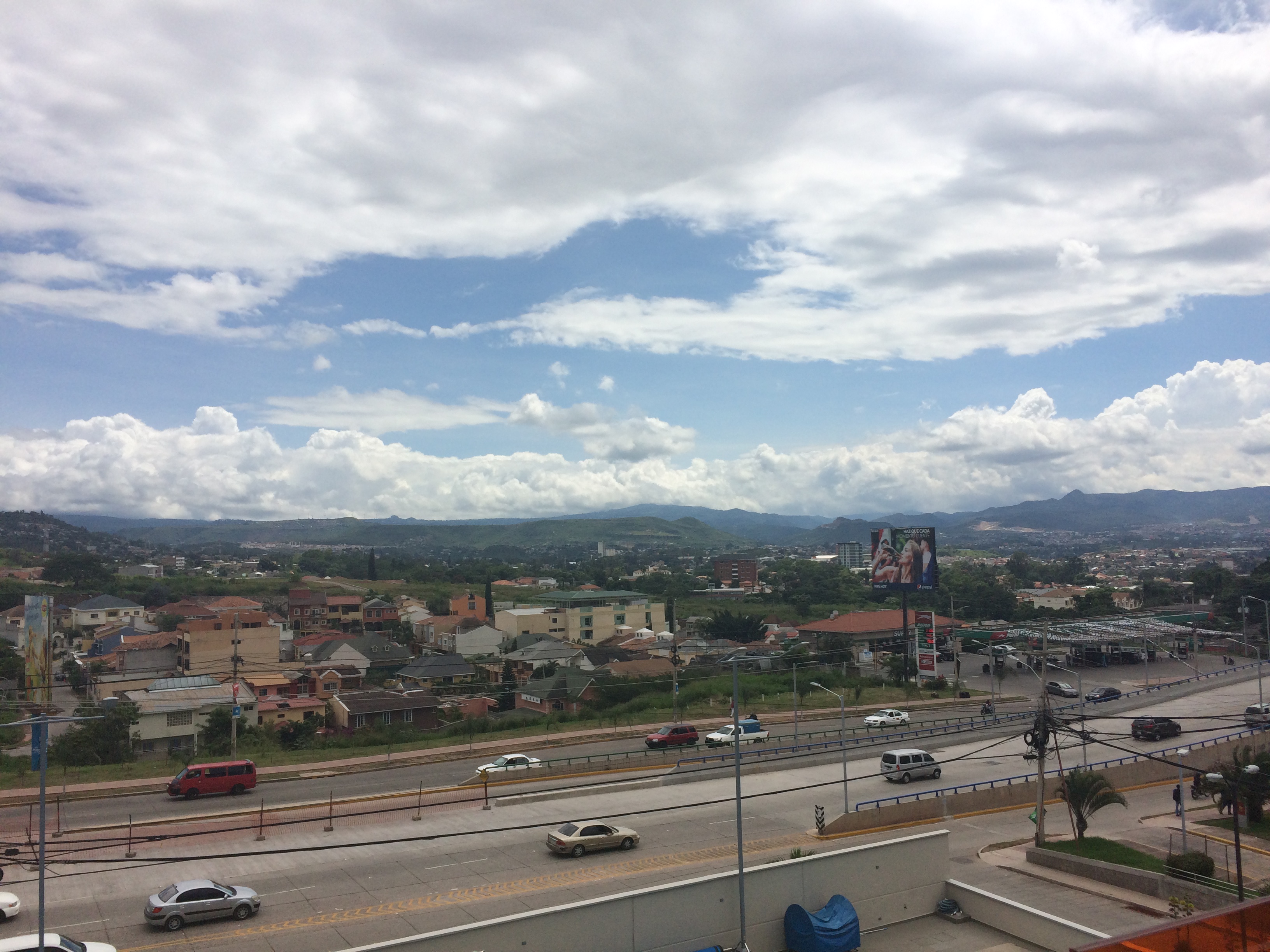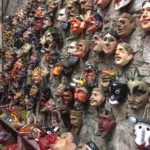Lost Carnet
The other day, I misplaced an important piece of diplomatic identification which required I present a “denuncia” (complaint) at the local police station. I was given a vague address: in front of the University and near the entrance to a certain Colonia (sub section of the city.) What should have been a simple procedure turned into a nightmare straight out of a Bad movie.
The errand started off badly. Google maps brought me several meters past the intended destination and on the wrong side of the road. In order to avoid making an illegal U turn, I drove several minutes in the opposite direction again before finding a safe “retorno” (return.) Unsure of where to go, I cracked opened the window in order to ask a passerby for directions. In Honduras, this act in itself is risky since I am a vulnerable “gringa” alone in a car and obviously lost. Eventually, I find the police station and am told to park in a simple dirt parking lot. I park the car and quickly cross the short distance to a large building painted blue with signs for the police academy. I open the door to first office I see since it says “Denuncias” above the door. I wait a moment and since no one is at the front desk, I peek into the office and ask the first person I see if I am at the right place. From behind her computer, a woman police officer tells me that this is the department but that I first need to get an authorization paper from her colleague and thus instructs me to another teller in the neighboring building. I follow her instructions, climb up the stairs, and enter a large waiting area. There are lots of people milling around. The sign above the teller says “Officio de denuncias” (complaint office.)
I wondered to myself: I’m not here to report a crime, just a lost piece of ID. Nonetheless, I entered the room filled mostly with people either sitting on chairs or standing about haphazardly. There is an officer wearing a blue police uniform sitting at a table receiving papers. There is also teller window with no one manning the desk behind it. I notice that the motley crew is comprised mostly of men, some with cowboy hats, others rough looking either sitting on old plastic chairs or standing around the perimeter walls of the room. It’s not clear where the line ends or begins. I don’t want to be rude and jump the line nor do I want to wait around to be later told I am in the wrong place. Then I notice that a sign above the window reads “Registro de armas ballisticas” (weapon registration.)
As I muster up the courage to inquire for assistance, the busy policeman at the table says something about registering weapons and instructs me to the open window where a man is now waiting in line.
Armas
Ballisticas
I start to look around and notice that the man at the table -where I was just a few seconds ago- is carrying a gun. As he bends over to take the papers out of his back pack, some bullets fall to the floor. I sweep the room at hip height and notice more arms. Nearly everyone in the room is holding a weapon. My heart begins to pound very quickly.
I am in a room full of guns.
In one of the most dangerous cities in the world.
With a quick calculation, I notice that of the twenty people in the room, there are only two other women, and I am the only “gringa,” the only foreigner. What would it take to threaten a blond foreigner who might have lots of money?
A short man with rugged features wearing an old t-shirt and cowboy hat walks up to the table carrying a long riffle tucked under his shoulder. I look past him to see a woman with puffer winter jacket loosely holding a revolver on her lap. The more closely I look at each person, the more I notice the arms they are bearing; I clock a man whom I assume to be a personal bodyguard or private driver. He sports a shaved head, smart clothes with dress pants, shirt and tie. I notice that he also carries a weapon- contentiously to protect his client.
My heart starts to beat faster. I start to sweat. I call my husband who works at the Canadian Embassy. Very confused. Very scared. He calmly instructs me to inquire and make sure I am at the right office. I intercept the official in uniform that walks by. He takes one look at me and ushers me into the office behind the “only personnel allowed” sign. I politely tell the one-armed police officer in Spanish (literally: his left arm was lame and lay limp by his side) that I’d like to declare a lost piece of ID. The conversation goes like this:
– Do you want the permission to carry a weapon? He asks.
– No, it’s for a missing piece of ID.
– Ok, he says, you want this special ID in order to carry a weapon.
– No! I just want to replace my diplomatic license in order to drive my car.
– You must go to the office outside (where I first went) he says.
– But I was told by a lady to come here first.
– So, you are sure you don’t want to carry a weapon?
– A weapon? No!
-Then you must go to the office downstairs.
My Spanish is pretty good. I can’t believe I could have gotten it THAT wrong. I sigh with relief as I leave the room full of people carrying weapons to be registered.
But to my dismay, the room downstairs is even larger and filled with many more people sitting in chairs and lining the walls; I dare not see what they might be carrying. I ask an officer the same question as above and I’m still not given a straight answer.
I can feel the weight of the room full of guns and weapons above me. I don’t feel like waiting hours in line in the wrong place. I decide to cut my losses and leave. When I finally make it back to the car, I call my husband and fall apart. I am literally shaking with fear, I start crying. I feel my heart beating fast with anger, shame, and frustration. I feel a turmoil of emotions: fear, worry, shock! What just happened in there?
I want to leave and get as far away from this place as quickly as possible. But I don’t know where I am! The traffic is moving fast and I have not been in this neighborhood before. One wrong turn and I could end up in a dangerous red zone. Desperate, I start driving in the general direction towards home. The conversation with the police officer plays over and over in my head:
I don’t want to carry a gun!
Why would the one-armed man think such a thing? (No pun intended.)
Clockwise from top left hand corner: Model police car at the Chiminike in Tegucigalpa, Masks for sale in Antigua Guatemala, Don’t touch the machete little boy!
I’m living in Tegucigalpa, one of the most dangerous cities in the world. I went to an unknown part of town and somehow ended up in a room full of people packing heat. All this for a lost piece of ID. Thankfully, I had made the wise chose to leave baby B at home this time. It took the whole day for me to return to normal and feel calm again.
This event is a reminder that life here is fragile. Although I have started to accept the risk and feel ok when leaving the compound, the worry is never far away. We live in Honduras, a developing country with a fragile state government, and the possibility of unrest is always just around the corner. It’s days like these where I wish we could just escape and return to somewhere safe, somewhere normal…



Well written Amy you held my full attention , even though I had heard the account verbally already
Time to come home. Can’t wait!
Amy! What a story! That’s definitely a scary situation. Glad to know your back home safe in the compound. 😘